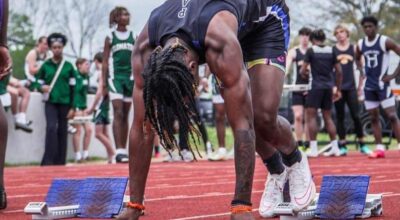BOE adds smartwatches to list of banned devices during testing
Published 5:30 pm Tuesday, March 28, 2017
Technology has often been a major benefit in the lives of students, but it has just as often served as a major distraction at best and a tool for cheating at worst.
To that end, the Butler County Board of Education made a revision to the system’s student policy to include a burgeoning trend—smartwatches.
The revision adds smartwatches to the list of digital devices—including cell phones, MP3 players, cameras or other telecommunication devices capable of capturing and relaying information—during the administration of a secure test.
If a student is observed using a digital device during the administration of such a test four things will happen:
1. Testing for the student will cease
2. The student’s device will be confiscated and subject to a search
3. The student will be dismissed from testing and
4. The student’s test will be invalidated.
Matthew Shell, technology director with the Butler County Board of Education, has seen firsthand the role that technology plays in the lives of students both inside and outside of the classroom.
Though many might associate high-end, expensive devices such as smartwatches with older students within the school system, Shell said that just as often the opposite is true.
“Where we’ve seen them most often is with the younger kids,” Shell said. “We had a kid at Greenville Elementary, for example, who had a smartwatch that has the ability to text and receive phone calls straight from the watch, and it has a tracking feature that parents like to keep up with their kids with.
“That’s really where it came to light. You have a watch in the classroom go off from a phone call, and that’s when we needed to take a look at it, especially from a testing situation—something like the ACT Aspire, which is a national test. It’s their policy that no digital devices are allowed in the room during testing. And we just wanted to remind parents that smart watches are included in that. Everybody is used to not taking a cell phone in. They just don’t think about the watch.”
Shell said that the school’s internal policy isn’t changing. Devices are still allowed in a typical classroom setting—according to the teacher’s discretion—but it’s during standardized tests and the like where smart devices in particular pose a problem.
And while smartwatches haven’t skyrocketed in popularity like many—including Apple—might have expected them to, they still serve a purpose, particularly in the lives of busy adults.
As for their applications in the classroom, that remains to be seen.
“I have one, but it’s mainly for convenience—just to have my wrist vibrate when I have appointments that I need to be at, or if I’m in a meeting it’s a quick glance to see what that text was that just came in to see if it’s something urgent or something that can wait,” Shell said.
“Anything used properly could benefit students, in the right environment. But for us, we have limited devices and we’re nowhere close to having a device per student. For us, the focus is on anything you can get in the hands of the student that will allow them to do research, type papers and that sort of thing. Smartwatches, not so much.”





